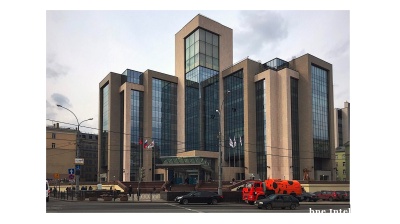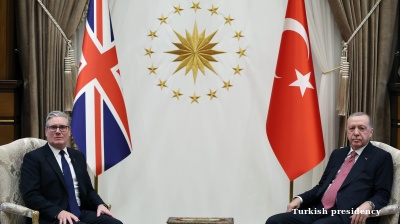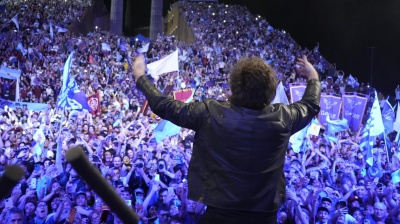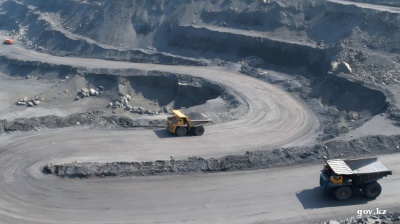Russia's state-owned gas group Gazprom has told Poland that it is going to suspend all gas supplies to the Central European country from April 27, Poland’s state-controlled oil and gas company PGNiG said, confirming earlier media reports.
Poland had until April 23 to pay for Russian gas via a ruble account in Gazprombank, which manages Russia's oil and gas payments, in a measure brought in by Moscow at the end of March in response to the EU’s sanctions aimed at hurting the Russian economy in the wake of Moscow’s waging war on Ukraine.
Poland and other EU countries said they would not comply, as even an indirect switch to the Russian currency would constitute a breach of the supply contracts. Nonetheless, Russian President Vladimir Putin insists on the scheme, threatening EU takers of Russian gas to comply - or face a cut-off in supplies.
Bulgaria, which is much more dependent on Russian gas, has also had its supplies cut off this week.
The member states have the backing of the European Commission, which said that the gas-for-rubles scheme would substantially alter the payment procedure to Russia’s benefit, thus weakening the sanctions.
PGNiG said in a market filing that Gazprom's decision to suspend supplies was a breach of its supply deal, which expires only at the end of the year.
Poland’s Climate and Environment Minister Anna Moskwa said that stopping supplies would not have much negative effect on people and the economy.
“Poland has the necessary gas reserves and sources of supply that protect our security – we have been effectively getting independent from Russia for years. Our [gas] storage is 76% full. There will be no shortage of gas in Polish homes,” Moskwa tweeted.
“PGNiG is prepared to source gas from various directions, including through gas connectors on the western and southern borders and the LNG Terminal in Swinoujscie,” the company said in a statement.
Poland said earlier that it was ready to go independent of Russian gas before the end of the year once a new gas link, the Baltic Pipe, becomes operational. The Baltic Pipe’s capacity of 10bn cubic metres (bcm) of gas annually is nearly exactly the amount Poland currently sources from Russia.
Cutting supplies came on the same day as Poland slapped sanctions on 50 Russian companies and oligarchs, including on Gazprom and the chemicals and fertiliser manufacturer Akron. Among the oligarchs, the sanctions target Mikhail Fridman, co-founder and the largest shareholder of Alfa Bank, the aluminium tycoon Oleg Deripaska, as well as Eugene Kaspersky, the founder of Kaspersky Lab, a cybersecurity company.
The cutting of gas supplies to Poland also happened on the day of the Polish Prime Minister Mateusz Morawiecki’s visit to Berlin to meet Chancellor Olaf Scholz. Germany has long been reluctant to support a fast embargo on imports of Russian energy commodities, citing economic turmoil it would bring upon the EU’s top economy.
Poland has been advocating the opposite, arguing that “blood money” is what keeps the Russian war in Ukraine going.
“We urge our partners to take the most radical steps in this regard,” the Polish PM’s office tweeted after Morawiecki’s meeting with Scholz.
News

Russia's Lukoil to sell international assets as a result of new US oil sanctions
Russia's second-largest oil producer, the privately owned Lukoil, will sell its international assets as a result of the new oil sanctions imposed by US President Donald Trump last week.

Awkward timing as British PM Starmer arrives in Turkey to sign jet deal on day Erdogan rival is arrested amid UK espionage claims
“Turkish democracy is the casualty of Europe’s rediscovery of Turkey’s strategic value,” columnist writes.
Category 5 hurricane Melissa bears down on Jamaica with Haiti and Cuba in storm's path
A catastrophic Category 5 hurricane was bearing down on Jamaica on Monday, October 27 afternoon with sustained winds of up to 282kph (175mph), threatening to become the strongest storm the Caribbean island has ever experienced.
.jpg)
US senator tells Maduro "head to Russia or China" as warships close in on Venezuela
A senior US Republican senator has warned that Venezuelan President Nicolás Maduro's time in power is running out and suggested he leave the country, as military tensions in the Caribbean continue to escalate.




